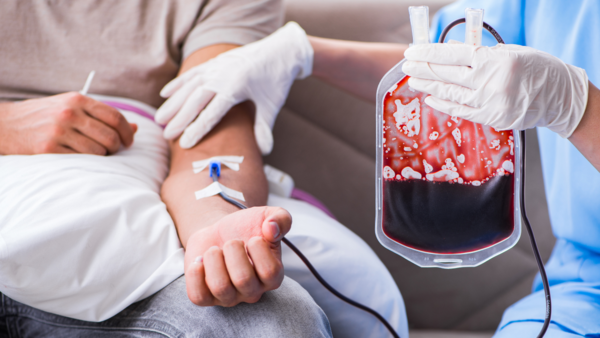Debunking Myths Surrounding Blood Donation
One common myth is that blood donation causes weakness. A person has 5-6 liters of blood in their body and can donate blood every 90 days (3 months). The body can recover blood very quickly: blood plasma volume within 24-48 hours, red blood cells in about 4-8 weeks, and platelets and white blood cells within a week. No weakness comes from this; on the contrary, people must understand that a blood checkup is done before donating blood, and you cannot donate blood before 3 months. Blood donation is very important.
Benefits
Donating blood can save multiple lives. There are also several health benefits for donors, including improved heart health, emotional well-being, and more.
Mini Health Check-Up
To give blood, you’re required to undergo a health screening. A trained staff member performs this checkup. They’ll check your:
Pulse
Blood pressure
Body temperature
Hemoglobin levels
This free mini-physical can offer excellent insight into your health. It can effectively detect problems that could indicate an underlying medical condition or risk factors for certain diseases.
Your blood is also tested for several diseases, including:
Hepatitis B
Hepatitis C
HIV
Malaria
Syphilis
Healthier Heart and Vascular System
According to Dr. Chirag Chaudhari, MD, Immuno Haematology Blood Transfusion (IHBT), Bhailal Amin General Hospital, Vadodara, “Your blood will flow more easily if it has a lower viscosity, or resistance to flow. Blood becomes less viscous when you donate it, resulting in easier blood flow. You may have a lower risk of cardiovascular disease due to the improved blood flow. Donating blood might result in a reduction in the lipid profile (coronary risk panel), which includes coronary artery risk tests. Repeated blood donations can help the blood flow in a way that’s less damaging to the lining of the blood vessels and lead to fewer blockages and improved emotional well-being.

Improved emotional health
Research has shown that donating blood can improve your emotional health. Helping others has been linked to:
Decreased stress
Reduced negative feelings
A sense of belonging
Keeping Iron in Check
Adults usually have about 3 to 4 grams (g) of iron in the body, mostly in red blood cells but also in bone marrow. Iron is needed for growth, development, and transportation of oxygen to different parts of the body. Having too little or too much iron in the blood can be harmful to your health.
Hemochromatosis is a disorder that occurs as a result of harmful iron levels. Symptoms include abdominal pain, darkening of the skin, painful joints, and weakness. Frequently giving blood is one way to lower the amount of iron in your body. Lowering high iron levels can be beneficial as long as they do not go too low.
You might gain an additional heart health benefit from a decrease in iron levels after blood donations. A study published in 2014 noted that decreased iron levels are linked to a lowered risk of heart disease.
You lose about a quarter of a gram of iron when you donate a unit of blood. The foods you eat in the weeks after donation replenish iron levels.
Possible Detoxification Effects
The body can detoxify itself naturally with help from your liver. Giving blood may help the body’s detoxing potential. Blood donations have been shown to affect the levels of perfluoroalkyl and polyfluoroalkyl substances (PFASs). PFASs are chemical compounds found in consumer and industrial products, such as grease-resistant paper and fire-extinguishing foam.
These chemicals take a long time to break down and can cause many issues, including:
Decreased immune system responses
Developmental delays
Increased risk of some cancers and obesity
Reproductive problems
A study published in 2022 found that firefighters who gave plasma or blood donations over 12 months had lower levels of PFASs than those who did not. The donations seemed to play a role in decreasing the chemicals in the participants’ bodies. More research is needed to determine if blood donations can provide any other detoxing benefits.
The Takeaway
There are many benefits to blood donations if you want to give blood and can do so safely. Benefits include receiving a health check-up, supporting heart health, and possibly detoxing your body. Do not forget who you are really helping. It’s important to recognize how crucial willing blood donors are to people who need blood transfusions. Even one donation can help save multiple lives. Donating blood is a safe, simple, and rewarding experience that usually takes 30 minutes.
5 Amazing Health Benefits of Eating Cucumbers You Didn’t Know About





